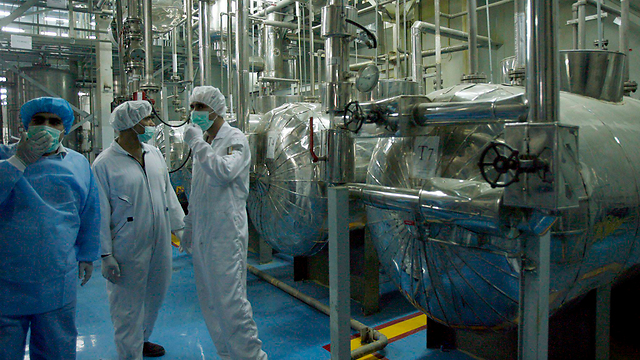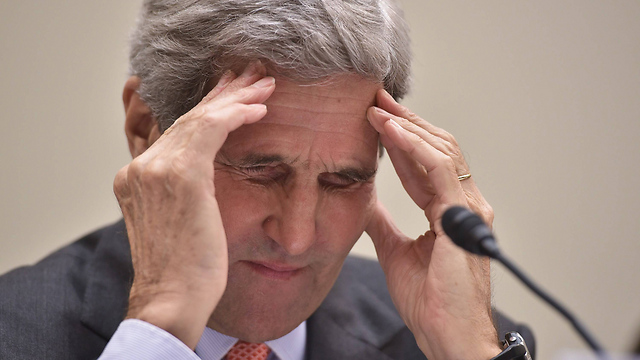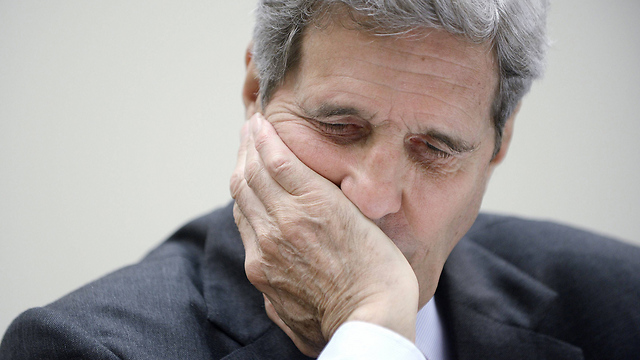
VIENNA — Iran wants its own officials to take soil samples at a site where it is alleged to have experimented with ways to detonate a nuclear weapon, and the UN agency probing the suspicions may agree provided it is allowed to monitor the process, two officials told The Associated Press Tuesday.
The investigation by the International Atomic Energy Agency is part of the overarching nuclear deal reached earlier this month between Iran and six world powers. Iran denies any such work but has agreed to give the IAEA access to the Parchin military complex.
Several US senators cited Obama administration officials last week as saying Iran could conduct its own soil sampling at Parchin. The officials who spoke to the AP said a final agreement has not yet been reached between Iran and the IAEA.
The officials said stringent oversight of the soil-sampling could include video monitoring. They did not say what reasons Iran gave for wanting to take its own samples. The samples would be analyzed by the agency for traces left by any nuclear experiments.
The officials come from IAEA member nations and are tasked with following Iran's nuclear program. They demanded anonymity because their information is confidential. The IAEA had no immediate comment.
David Albright, whose Institute for Science and International Security is often consulted by the US government on proliferation issues, said the IAEA "could instruct Iran in where and how to take the sample, as they would an inspector. They could try to keep a close watch on how Iran follows the instructions."
At the same time, "the IAEA could not exclude Iran tampering with the sample in some way," he said.
Iran has refused to give IAEA experts access to people, documents and sites allegedly linked to the suspected weapons work for nearly a decade. But in its quest for the end to nuclear-related sanctions, it agreed earlier this month to work with the agency, and IAEA chief Yukiya Amano has said he expects to be able to deliver a report by December.
The alleged weapons work and the IAEA's investigation are not central to the nuclear deal, which calls for the US and other world powers to end economic and military sanctions in exchange for concessions from Iran in its nuclear program. Tehran says its program is entirely peaceful, but the US and most other nations believe it is aimed at acquiring nuclear weapons.
Still, US lawmakers skeptical of the deal see the matter of whether the UN agency will receive full cooperation from Iran as a core issue.
The suspected explosives testing at Parchin, south of Tehran, is only one of 11 alleged cases of nuclear weapons-related work listed by the IAEA, based on US, Israeli and other intelligence and its own research.
Tehran insists Parchin is a conventional military area with no link to nuclear tests. In recent years, it has carried out major construction and paving at the site where the alleged experiments took place, while refusing dozens of IAEA requests for a visit.
'If you kill the deal, you are not making America safer'
In Washington, US Secretary of State John Kerry intensified efforts to beat back criticism of the Iran nuclear deal and convince US lawmakers that rejecting it would give Tehran a fast track to a weapon and unlock billions of dollars from collapsed sanctions.
Battle-hardened from years of negotiations with Iranians, Kerry sharpened his response to US congressional criticism that the deal's provisions were temporary and would not prevent Iran from obtaining a nuclear weapon in the long run.
"Iran has agreed to refrain from producing or acquiring highly enriched uranium and weapons-grade plutonium for nuclear weapons forever," he told the House of Representatives Foreign Affairs Committee.
"When it comes to verification and monitoring, there is absolutely no sunset in this agreement. Not in 10 years, not in 15 years, not in 20 years, not in 25 years; no sunset ever."
"If you kill the deal, you are not making America safer," he said.
Joined by Treasury Secretary Jack Lew and Energy Secretary Ernest Moniz, two other members of President Barack Obama's Cabinet, Kerry was part of the administration's blitz to coax skeptical lawmakers into supporting the nuclear deal.
The Republican-controlled Congress has until Sept. 17 either to endorse or reject the agreement. Rejection would prevent Obama from waiving most US-imposed sanctions on Tehran, a key component of the deal.
The four-hour hearing turned testy. Some Republican House members shouted at Kerry, days after Senate Republicans accused him of having been "bamboozled" or "fleeced" during the talks.
Kerry visibly lost patience at times. He said he was hearing many complaints about what the agreement doesn't do, while opponents offered no alternative.
"What this agreement is supposed to do is stop them from having a nuclear weapon. Now I want to hear somebody tell me how they're going to do that without this agreement," he said.
Kerry insisted walking away would isolate the United States.
"If we walk away, we walk away alone. Our partners are not going to be with us. Instead, they'll walk away from the tough multilateral sanctions that brought Iran to the negotiating table in the first place," Kerry said.
House members signaled the difficulties the administration will face getting Congress on board.
Representative Ed Royce, the committee's Republican chairman, said the deal would provide Iran with a "cash bonanza," while weakening Washington's ability to pressure Tehran.
Representative Eliot Engel, the top Democrat, said he saw a number of troublesome issues in the agreement.
Both Republicans and Democrats expressed concern about Americans held in Iranian prisons. Kerry said he was in "direct talks" with Tehran about the detainees.
Others worried about Iran's support for militants fighting US allies. "They support Hamas, Hezbollah and Houthi, and those are just the organizations that begin with the letter 'H,'" said Representative Brad Sherman, a Democrat.
Many Democrats say they have not decided how they would vote, when Congress returns in September from a five-week recess. But a few have come out in favor.
Kerry noted during the hearing that Representative Sander Levin, the longest serving Jewish member of the House, issued a statement on Tuesday saying he backed the deal.
Kerry, Lew and Moniz also testified in the Senate on Thursday, and Defense Secretary Ash Carter is among officials due to speak to lawmakers later this week.



















